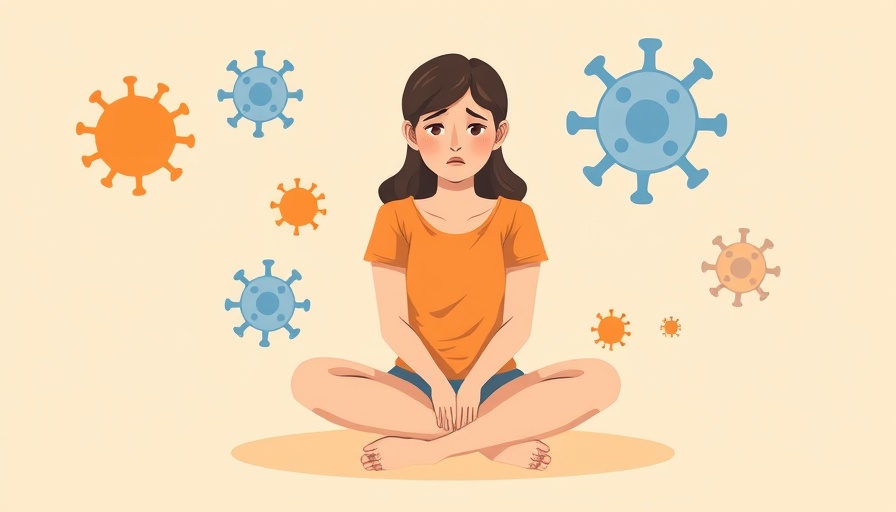
The Disturbing Allegation: Ethics in Medical Consent
Recent allegations have emerged from hospitals that allegedly administered COVID-19 vaccinations to sedated patients without obtaining proper consent. This shocking breach of medical ethics raises profound questions about patient autonomy, the right to informed consent, and the broader implications for healthcare delivery.
At its core, informed consent is a fundamental principle of medical ethics, underpinning patient rights worldwide. The legal framework usually requires that adults with decision-making capacity give their consent freely before receiving medical interventions. Unfortunately, in the case of sedated patients, their ability to provide consent is compromised. This poses serious ethical dilemmas for healthcare practitioners and facilities.
In the context of COVID-19 vaccinations, especially for vulnerable populations, the delicate balance between protecting public health and preserving individual rights has never been more critical. Healthcare professionals are expected to act in the best interests of their patients, but this must also involve respecting their autonomy and ensuring they are intimately involved in medical decisions whenever possible.
Understanding Legal Implications of Consent
When patients cannot consent, such as those under sedation or with certain cognitive impairments, the law often falls back on guardians or legal representatives to make decisions on their behalf. Courts in various jurisdictions have upheld the principle that vaccination may be in a patient's best interest, especially for individuals at high risk of severe illness from COVID-19. However, the method of administration—especially if done covertly—can lead to significant legal ramifications.
In several legal cases involving incapacitated individuals, judges ruled in favor of vaccination when it was deemed essential for the patient's health, reaffirming the legal precedence that doctors must act in patients’ best interests, even when families object. This legal scaffolding, however, does not justify disregarding consent requirements; instead, it emphasizes the delicate line that must be navigated in such scenarios.
Alternative Healthcare Perspectives: Bridging the Gap
Amid rising concerns about conventional practices, many individuals are turning toward complementary and alternative medicine (CAM) as viable health solutions. Practices rooted in holistic healing—including herbal treatments, homeopathy, and traditional medicine—stress the importance of patient involvement and informed consent throughout treatment processes. Parents are increasingly interested in understanding how these methods can enhance their families' well-being, especially in the wake of precarious medical ethics surrounding vaccinations.
Integrative health experts encourage transparency and the provision of all information necessary for informed decision-making, aligning closely with the principles of consent and ethics. Traditional healers, herbalists, and other practitioners advocate for practices that not only focus on physical wellness but also respect cultural and personal beliefs around health interventions.
Emerging Autonomy and Public Health: A Balancing Act
The tension between public health objectives and individual autonomy has intensified since the onset of the COVID-19 pandemic. As we navigate this era, it’s crucial for parents to grasp the implications of vaccinations, both conventional and alternative, while remaining proactive advocates for their children’s health choices.
In light of this, how can parents ensure that their voices are heard in medical settings? First, they should stay informed about the treatments being administered and empowered to ask healthcare providers questions regarding policies on consent, especially concerning vulnerable populations. Additionally, advocates emphasize the importance of participating in discussions surrounding health policy, ensuring that all voices—especially those of patients—are represented. This civic engagement could initiate changes in how consent is viewed and respected in medical settings.
Steps Forward: Empowering Parents Amidst Ethical Concerns
To navigate the complexities of modern medicine and ensure their children’s interests are supported, parents should take thoughtful actions:
- Stay Informed: Educate themselves about both traditional and alternative medicine practices. Understanding various healing modalities can foster more meaningful discussions with healthcare professionals.
- Advocate for Consent: Be vocal about the necessity for explicit consent in medical treatments. Parents should demand transparency from healthcare providers regarding how decisions are made when it comes to a loved one’s healthcare.
- Explore Holistic Options: Consider complementary medicine as a part of a broader health plan. Many parents find that incorporating natural remedies and holistic practices alongside conventional treatments offers beneficial outcomes.
- Engage with Healthcare Providers: Actively participate in health discussions with providers. Establishing a collaborative relationship can ensure that parental concerns are addressed and respected.
- Promote Ethical Practices: Advocate for hospitals and healthcare facilities to uphold high ethical standards regarding informed consent and patient rights, reinforcing the necessity of ethical practice among all healthcare providers.
Conclusion: Navigating Health Choices in Challenging Times
The unsettling situation of administering vaccinations without consent challenges the core ethical framework of patient care, particularly in vulnerable populations. As concerns rise about medical ethics and consent, it is crucial for parents to assert their roles in their children’s healthcare, advocating for informed choices that respect individual rights. In doing so, they not only protect their families but also contribute to a more accountable healthcare system that honors the principles of informed consent and ethical practice.
As I conclude, I urge parents to reflect on these insights and take charge of their health decisions. With every choice made, parents can push for systemic change, ensuring the protection of rights and the dignity of vulnerable populations in medical settings. Ensure every voice is heard—engage in dialogue and encourage healthcare systems to respect our collective rights as patients and caregivers.
 Add Row
Add Row  Add
Add 




Write A Comment